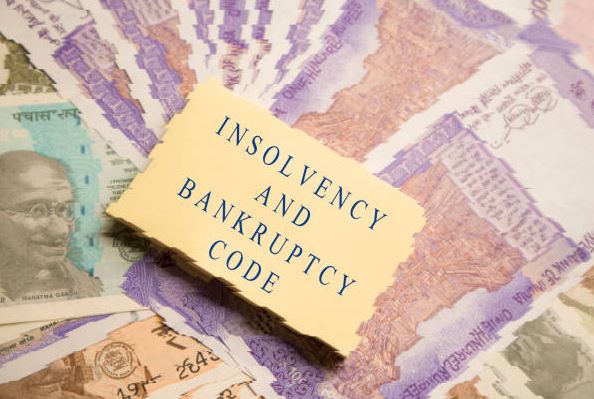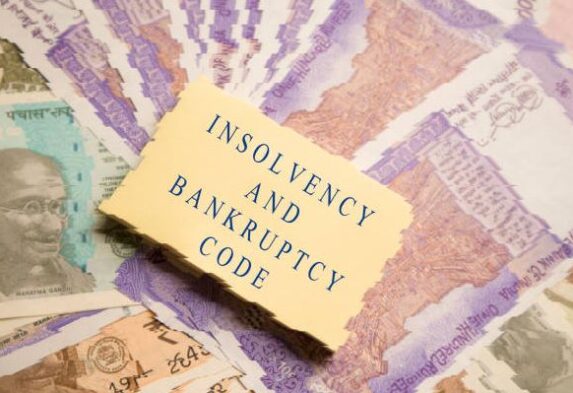Supreme Court Upholds IBC Principle: All Claims Outside Resolution Plan Are Extinct


Introduction
The Supreme Court of India in Electrosteel Steel Limited vs Ispat Carrier Private Limited (Civil Appeal No. 2896 of 2024 arising out of SLP (C) No. 15823 of 2023), reinforced a pivotal principle governing India’s insolvency framework. The case, cantered on whether claims of operational creditors, like Ispat Carrier’s, which were explicitly settled at nil under a resolution plan approved by the National Company Law Tribunal (NCLT) on 17 April 2018, could still be pursued through arbitration. Despite the resolution plan’s approval, the Facilitation Council proceeded to pass an award on 6 July 2018, mandating Electrosteel Steel Limited to pay a substantial sum to Ispat Carrier.
This decision has unequivocally clarified that once a resolution plan is sanctioned under the Insolvency and Bankruptcy Code, 2016 (IBC), all claims not incorporated within it are legally extinguished, marking a significant triumph for the finality and binding nature of resolution plans and promising a more streamlined approach to corporate rehabilitation in India.”
Table of Contents
Background of the Case
In 2014, Ispat Carrier Private Limited filed claim petitions before the West Bengal Micro, Small and Medium Facilitation Council (Facilitation Council) against Electrosteel Steel Limited for a total principal outstanding amount of Rs. 1,59,09,214.00. These claims were made under the Micro, Small and Medium Enterprises Development Act, 2006 (MSME Act). After the conciliation proceedings failed, arbitration proceedings were initiated in 2017. However, in June 2017, the financial creditors of Electrosteel Steel Limited Invoked Section 7 of the IBC before the National Company Law Tribunal (NCLT), Kolkata Bench. This led to the imposition of a moratorium and the appointment of an interim resolution professional, suspending the arbitration proceedings.
In March 2018, Vedanta Limited submitted a resolution plan under which all claims of operational creditors, including Ispat Carrier’s, were settled at nil value. The resolution plan was approved by the NCLT on 17 April 2018. Despite this, the Facilitation Council resumed arbitration proceedings and passed an award on 6 July 2018, directing Electrosteel Steel Limited to pay Rs. 1,59,09,214.00 along with interest to Ispat Carrier. Electrosteel Steel Limited did not challenge the award under Section 34 of the Arbitration and Conciliation Act, 1996 (1996 Act) but instead filed an application in 2019 to challenge the execution of the award under Section 47 of the CPC.
High Court Decision
The Executing Court dismissed Electrosteel Steel Limited’s application and directed it to comply with the award. Electrosteel Steel Limited then challenged this decision before the Jharkhand High Court under Article 227 of the Constitution of India. The High Court framed three key questions:
- Whether the plea of nullity regarding an arbitral award can be raised in an execution proceeding under Section 47 of the Civil Procedure Code, 1908 (CPC).
- Whether the arbitral award can be assailed as a nullity and hence non-executable within the permissible grounds of raising such a plea.
- Whether the Facilitation Council lost its jurisdiction to proceed and pronounce the arbitral award in view of the approved resolution plan under Section 31 of the IBC.
The High Court held that the plea of nullity could be raised in an execution proceeding but within a very narrow scope. It rejected the contention that the award suffered from an inherent lack of jurisdiction and concluded that the Facilitation Council did not lose jurisdiction to pass the award despite the approval of the resolution plan. The High Court dismissed Electrosteel Steel Limited’s petition.
Rival Contentions
Appellant’s Contentions
Electrosteel Steel Limited contended before the Supreme Court that the High Court erred in holding that the resolution plan did not determine Ispat Carrier’s claim at nil, and thus the Facilitation Council had jurisdiction to decide on the claim. The appellant argued that the resolution plan approved by the NCLT settled Ispat Carrier’s claim at nil, making it binding under Section 31(1) of the IBC. Electrosteel Steel Limited referred to several Supreme Court judgments to argue that once a resolution plan is approved, it binds all stakeholders, and no further proceedings can be initiated or continued regarding claims not part of the resolution plan.
Respondent’s Contentions
Ispat Carrier Private Limited argued that Electrosteel Steel Limited had knowledge of the arbitral award and had used it to dispose of other legal proceedings. The respondent contended that the arbitral proceedings were revived after the moratorium period and that the Facilitation Council had jurisdiction to pass the award. Ispat Carrier distinguished the case from previous judgments, arguing that its claim was not included in the resolution plan and that the IBC does not automatically terminate pending proceedings but merely stays them during the moratorium period.
Legal Provisions and Judgments Relied Upon
The Supreme Court relied on several key provisions of the IBC, including Sections 30, 31, 32, 61, and 238, which govern the submission, approval, and binding nature of resolution plans. Sections 34 and 36 of the Arbitration and Conciliation Act. 1996 Act were cited to discuss the enforcement and challenge of arbitral awards. Section 47 of the CPC was also referenced in relation to objections to the execution of decrees.
The court drew upon several significant judgments, including Essar Steel India Ltd. vs Satish Kumar Gupta, Ghanshyam Mishra & Sons (P) Ltd. vs Edelweiss Asset Reconstruction Co. Ltd., and Ajay Kumar Radheshyam Goenka vs Tourism Finance Corporation of India Ltd., to emphasize the finality and binding nature of approved resolution plans under the IBC.
Analysis of the Court
The Supreme Court analysed the IBC provisions and relevant judgments. It concluded that once a resolution plan is approved by the NCLT under Section 31 of the IBC, all claims not part of the resolution plan stand extinguished. The court held that the Facilitation Council lacked jurisdiction to arbitrate on Ispat Carrier’s claim post-approval of the resolution plan. The court emphasized that allowing creditors to pursue individual claims after a resolution plan’s approval would undermine the IBC’s objectives of providing a fresh start to the corporate debtor.
Final Decision
The Supreme Court allowed the appeal, set aside the High Court’s order, and quashed the execution proceedings in the Commercial Execution Case No. 21 of 2022 (Execution Case No. 77 of 2018). The court concluded that Ispat Carrier’s claim stood extinguished upon approval of the resolution plan, and the arbitral award passed by the Facilitation Council was a nullity and non-executable.
Conclusion
The Supreme Court’s decision in Electrosteel Steel Limited vs Ispat Carrier Private Limited reinforces the finality and binding nature of approved resolution plans under the IBC. By setting aside the High Court’s order and quashing the execution proceedings, the court upheld the principle that once a resolution plan is approved, it binds all stakeholders, and no further proceedings can be initiated or continued regarding claims not part of the resolution plan. This judgment serves as a significant precedent for insolvency proceedings and highlights the importance of adhering to the IBC’s framework to ensure the successful rehabilitation of corporate debtors.
For further details write to contact@indialaw.in





Leave a Reply
You must be logged in to post a comment.